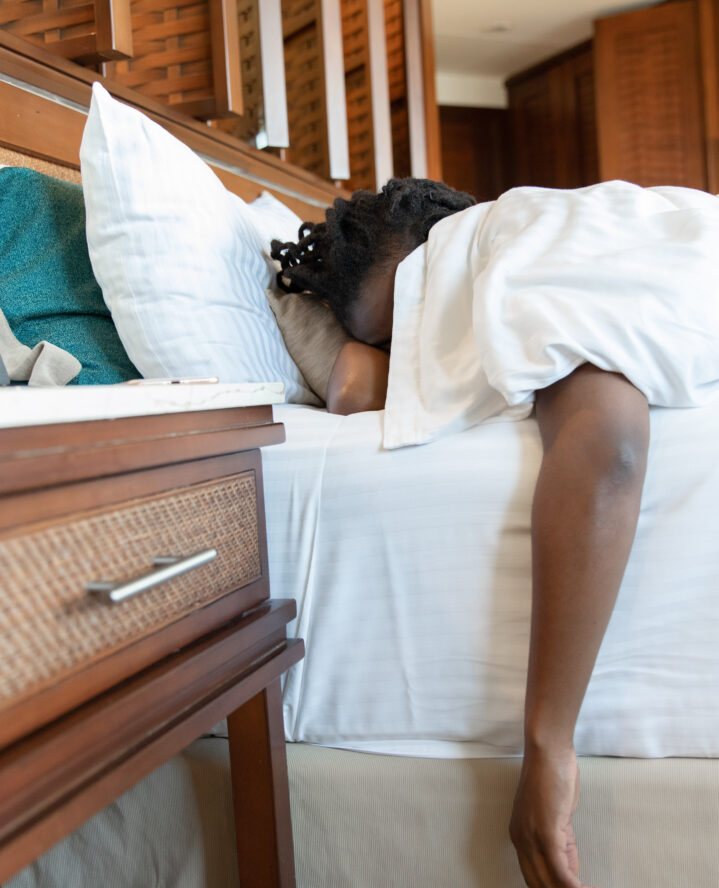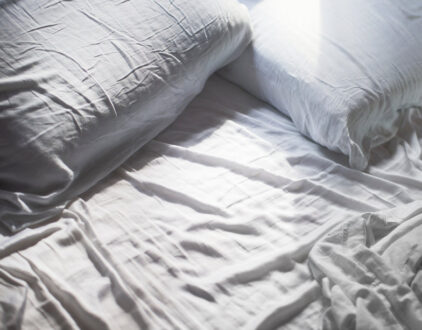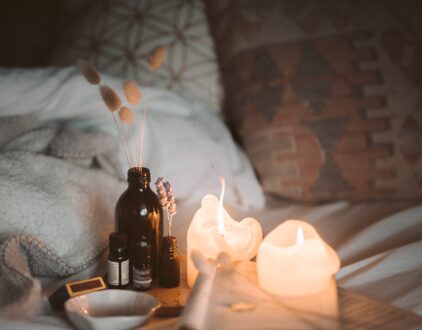Everyone knows that getting enough sleep is important. While the Centers for Disease Control and Prevention (CDC) recommends that the average adult aim for at least seven hours of sleep per night, the reality is that many people make do with much less. However, a critical component of getting quality sleep is reaching the REM stage during a sleep cycle. REM, or rapid eye movement, is the deepest level of sleep and is when a person dreams. Even if you don’t remember those dreams, reaching this stage is critical for your body to reap the benefits of going to bed.
People that don’t routinely reach the REM cycle often suffer during their waking hours. Studies have proven that REM sleep deprivation manifests as poor memory function, difficulty concentrating, and excessive daytime sleepiness. A variety of factors can impact your sleep quality. But some people are curious if your pillows can affect your dreaming — and if so, how to counteract those effects.
Can Pillows Affect Your Dream?
Officially, there’s no proof that a pillow can directly affect your dreams. Specifically, this refers to whether or not you enter REM sleep, how well you can recall a dream, or whether it’s a pleasant one or a nightmare. Unoffficially, you’ll find plenty of anecdotal evidence in digital chat rooms or random websites of varying quality claiming that having a pillow with the right thickness or thread count in the cover directly impacted how easily a person fell asleep and whether they had nightmares or happy dreams.
Can Pillows Affect Sleep Quality?
Given that not everyone can recall dreams — whether good or bad — a better question to ask is if a pillow can affect your quality of sleep. Unlike the dream question, there’s little doubt that a pillow that’s too thick or thin, stiff or soft, or that contains fibers you’re allergic to can most definitely impact your sleep quality.
How Pillow Quality Affects Sleep
Believe it or not, everyone has their own version of a Goldilocks zone when it comes to bedding. Some people like to sleep on firm mattresses, others want something softer. Similarly, pillows aren’t a one-size-fits all affair. If you sleep on a pillow that’s too big or too firm, this changes your body’s alignment. In particular, an oversized, stiff pillow can push your head forward, creating airway blockages.
At best this translates to snoring which can annoy any roommates you might have. But if you also suffer from sleep apnea, it can worsen this condition. This means you might have more disruptive sleep where you’re constantly waking up. And again, failing to reach the much-needed REM stage means you’re not getting the recuperative sleep you need to function properly during the day. Additionally, it can also create a strain in your spine and neck, leaving you sore in the morning.
Likewise, a pillow that’s worn out and thin as a pancake is just as detrimental. Again, you’re more likely to experience strain on your neck since there’s not enough support. Your spine will also most likely be out of alignment, leaving you with back pain when you wake. Alternatively, some people with worn out pillows that need to be replaced may find that they wake up throughout the night, constantly having to readjust it so they can fall back to sleep.
Finally, a dirty pillow or one that contains fibers you’re allergic to is also likely to cause disrupted sleep. As much as you might not like to think about it, organisms like dust mites, allergens, bacteria, dirt, and the scariest of them all — bed bugs — might be lurking in your pillow. And often people don’t effectively clean their pillows enough to prevent the above issues from posing a hazard.
Avoid this by regularly cleaning pillowcases, along with all other bedding in hot water, and bleach if they’re white. If possible, vacuum soft surfaces like your mattress and pillows. Keep pillows in covers designed to prevent nasties like dust mites and bed bugs from infiltrating the actual pillow.
Can I Control My Dreams?
In a perfect world, you’d only have to think pleasant thoughts as you sleep and that would be enough to keep your dreams happy. The reality is that once you drift off to dreamland, you don’t have total control over what plays out when you’re eyes are closed. However, experts know that dreams are rarely literal. This means that what you see or believe you’re experiencing when you’re dreaming is usually far from reality. Instead, your dreams serve as an allegory or symbolism for issues that are bothering you when you’re awake.
For example, if you dream about snakes, it often means that there’s someone (or several someones) in your waking life that you don’t trust. Maybe you feel like they’ve been nice-nasty to you one too many times. Or it’s an ex that keeps popping up in your dreams. Alternatively, if you’re dreaming that your boyfriend tries to kill you, this rarely means that he’s actually out to do that. Instead, it usually represents an unresolved issue between you two that must be addressed.
So, the best way to control your dreams and side step the nightmares is to take the time to understand them. Don’t ignore how they make you feel, but don’t take them literally. Instead, dissect what the key aspects are, what they really represent, and think about how that message translates to your waking life. If you can, address the issue head on as this is often the only way to not only resolve it in real life, but for your subconscious as well.
Prioritize Better Sleep
Everyone needs to get enough sleep. Poor sleep can translate into subpar performance in your waking life. And left untreated, can manifest as a real sleeping disorder over time. While a pillow won’t directly change your dreams, bad pillows can make it harder for you to sleep comfortably — which does translate as poor sleep. And finally, if unsettling dreams are bothering you, it’s usually a sign that there’s some unaddressed issue in your waking life that you can no longer ignore.
popular posts
- 1It’s Black Business Month, So Let’s Go Shopping and #BuyBlack!
- 2These Home Decor Items Will Instantly Make Your Space Look Outdated
- 3Black-Owned Home Decor Stores To Support Across the United States
- 4A Look Inside Elon Musk's Tiny $50,000 House
- 57 Black and Multicultural Designers To Follow For Design Inspo
Bedroom
FOLLOW ALONG ON INSTAGRAM
#homeandtexture
Find us on social for more home inspiration where culture, personal style, and sophisticated shopping intersect to help you create a home where you love to live.




